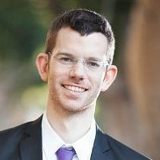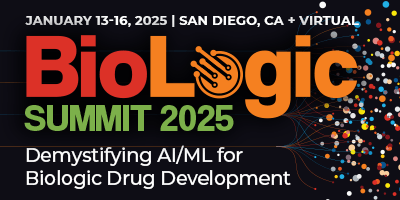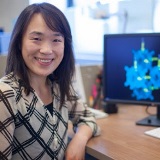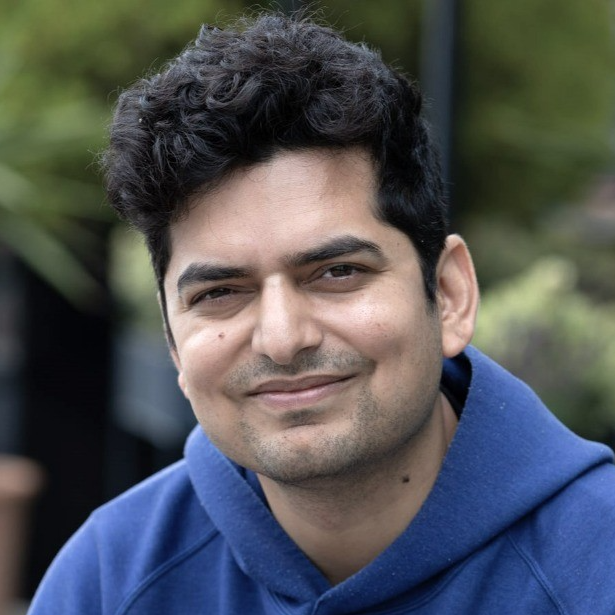Cambridge Healthtech Instituteの初開催
Predicting Developability and Optimization Using Machine Learning
MLによる開発可能性の予測と最適化
Accelerating the Development of Complex Biotherapeutics
複雑なバイオ医薬品の開発を加速
2025年1月15日 - 16日PST(米国太平洋標準時)
1月15日水曜日
NOVEL PREDICTIVE AND GENERATIVE APPROACHES FOR SOLVING REAL-WORLD ENGINEERING CHALLENGES
実際のエンジニアリング課題の解決に対する新規の予測と生成アプローチ
Antibody Optimization Through Combining Structure-Based Approaches and Deep Learning
 Alan Cheng, PhD, Senior Director, Modeling and Informatics, Merck Research Labs
Alan Cheng, PhD, Senior Director, Modeling and Informatics, Merck Research Labs
In the discovery of antibody therapeutics, experimental molecular biology and biophysical methods are powerful approaches that can be combined with computational approaches to accelerate identification of better molecules. We share case studies illustrating how the close integration of experimental methods and deep learning can identify new leads and how structure-based and deep learning approaches can be used to optimize molecules for developability properties.
A Clinically Validated AI-Driven Platform for Designing Smart and Dynamic Antibody Therapeutics
 Reshef Shilon, Head of AI, Biolojic Design
Reshef Shilon, Head of AI, Biolojic Design
Although antibody drugs have great therapeutic benefits, most function primarily as inert antagonists. They don't fulfill the potential of proteins, which are dynamic machines that can sense changes in the environment and respond to them. Biolojic Design's clinically validated AI-driven platform designs dynamic antibodies that are programmed to respond to changes in the environment The first such antibody is in phase 2. I will describe Biolojic’s platform, which experimentally generates data for AI models. I will focus on the computational aspects, which aim to optimize, simultaneously, multi-antibody properties, which in turn allow the design of smart and dynamic antibodies.
Refreshment Break in the Exhibit Hall with Poster Viewing2:35 pm
Delivering Better Clinical Candidates, Faster: Practical Impacts of Machine Learning on Biologics Preclinical Pipeline
 Andrew B. Waight, PhD, Senior Director, Machine Learning, Discovery Biologics & Protein Sciences, Merck Research Labs
Andrew B. Waight, PhD, Senior Director, Machine Learning, Discovery Biologics & Protein Sciences, Merck Research Labs
AI/ML applications to the field of protein engineering have recently generated immense enthusiasm. In addition to protein folding and de novo design, statistical and deep learning technologies are revolutionizing many aspects of the biologics therapeutic discovery. We cover some of the real-world use cases for AI/ML applications-from hit identification to lead optimization stages of discovery biologics-that are facilitating the computational identification of high-quality preclinical candidates and improving efficiency.
Enhancing AI Capabilities through Smart Data Collection and Evolutionary Intelligence in Antibody Development
 M. Frank Erasmus, PhD, Head, Bioinformatics, Specifica, an IQVIA business
M. Frank Erasmus, PhD, Head, Bioinformatics, Specifica, an IQVIA business
Exploring the bilateral importance of leveraging strategic data collection and intelligent experimental design to enhance AI capabilities in antibody development. Discussing the utilization of evolutionary intelligence to refine and optimize affinity maturation strategies, leading to the discovery of antibodies with superior binding properties and therapeutic potential.
 Optimizing Antibodies and Related Protein Therapeutics: Bridging AI, Experimental Designs and Developability.
Optimizing Antibodies and Related Protein Therapeutics: Bridging AI, Experimental Designs and Developability.
 Sridhar Govindarajan, Co Founder & CTO, IT, ATUM
Sridhar Govindarajan, Co Founder & CTO, IT, ATUM
ATUM’s antibody platform combines ML/AI with production quality expression systems and robust analytics. Antibodies are designed in silico, assisted by AI and knowledge base, synthesized at scale in commercially relevant platforms, and are characterized for functionality and developability features simultaneously. ML models built on these datasets which are built specifically to “learn”, are highly predictive and generate new designs for high-specificity antibodies with developability properties for process development, scale-up, and manufacturing.
Generative and Predictive Machine Learning for Iterative Multi-Objective Therapeutic Antibody Optimization
 Hunter Elliott, PhD, Senior Director, Machine Learning, BigHat Biosciences
Hunter Elliott, PhD, Senior Director, Machine Learning, BigHat Biosciences
The path from discovered binder to developable modern antibody therapeutics represents a complex protein engineering challenge. At BigHat we frame this as a multi-objective Bayesian optimization problem, with machine learning models in-the-loop with a high-throughput wet lab on a weekly build-test-train cycle. We present several case studies of novel predictive and generative ML methods deployed on this platform to solve real-world antibody therapeutic engineering challenges.
TABLE 7: Applying AI to Improve Manufacturability and Developability of Multispecific Biologics
 Jeffrey J. Gray, PhD, Professor & Research Mentor & Outreach Advisor, Chemical & Biomolecular Engineering, Johns Hopkins University
Jeffrey J. Gray, PhD, Professor & Research Mentor & Outreach Advisor, Chemical & Biomolecular Engineering, Johns Hopkins University
- Improving humanization and predicting immunogenicity
- Reducing off-target binding
- Predicting aggregation, viscosity, and excipient formulation
- Combining targets for improved efficacy
Wednesday Night Meet-Up
水曜日夜のミートアップ
What Needs to be Done to Make a Pipeline of Mini-Binders More Developable?
 Monica L. Fernandez-Quintero, PhD, Staff Scientist, General Inorganic & Theoretical Chemistry, Scripps Research Institute
Monica L. Fernandez-Quintero, PhD, Staff Scientist, General Inorganic & Theoretical Chemistry, Scripps Research Institute
Network, Inspire Others and Connect
- Get to know fellow peers and colleagues
- Make connections and network with other institutions
- Inspire others and be inspired!
We will meet outside of the exhibit hall then transition to the lounge area
1月16日木曜日
Registration and Morning Coffee7:45 am
PLENARY KEYNOTE SESSION
プレナリーセッション(基調講演)
Transforming Therapeutic Protein Engineering
 Marissa Mock, PhD, Senior Research Director, Amgen Inc.
Marissa Mock, PhD, Senior Research Director, Amgen Inc.
Generative biology is an emerging discipline that integrates artificial intelligence (AI) and machine learning (ML) with advanced life science technologies. The application of generative biology to protein engineering is accelerating the discovery and design of complex proteins with therapeutic potential-and, maximizing the benefits of these novel technologies will require seamless integration of both wet- and dry-laboratory technologies.
Session Break8:50 am
INTEGRATING AI/ML FOR ENHANCED ANTIBODY SELECTION AND DEVELOPABILITY
抗体選択と開発可能性の向上に対するAI/MLの統合
Generative AI-Guided Design of Vaccine Immunogens
 Reda Rawi, PhD, Staff Scientist and Co-Head, Structural Bioinformatics Core, NIH NIAID
Reda Rawi, PhD, Staff Scientist and Co-Head, Structural Bioinformatics Core, NIH NIAID
Structure-based vaccine design campaigns that aim to stabilize full-length proteins will not succeed when the virus is evading immune response by sequence diversity. In this work, we capitalized on the recent major advanced that have been achieved in protein design using generative AI tools. We in silico designed de novo proteins that scaffold sequence-conserved epitope regions of the antigens of interest. Next, we incorporated the in silico designed mini proteins onto self-assembling nanoparticles and performed pre-clinical animal immunization studies eliciting immune responses.
ML Optimization of Candidate Antibody Yields Highly Diverse Sub-Nanomolar Affinity Libraries
 Lin Li, PhD, Senior Staff Member, Lincoln Laboratory, Massachusetts Institute of Technology
Lin Li, PhD, Senior Staff Member, Lincoln Laboratory, Massachusetts Institute of Technology
The design and discovery of early-stage antibody therapeutics is time- and cost-intensive. I will present an end-to-end machine learning-driven single-chain variable fragments (scFv) design framework that uniquely combines large language models, Bayesian optimization, and high-throughput experimentation. The method enables rapid and cost-effective design of thousands of scFvs across all complementary determining regions. The designed antibodies exhibit strong binding affinities, at high levels of diversity, to a given antigen.
 AI-Driven paratope mapping (KisoSeek™): A new paradigm for antibody discovery
AI-Driven paratope mapping (KisoSeek™): A new paradigm for antibody discovery
 Morteza Babaie, Senior AI Scientist, Kisoji Biotechnology Inc
Morteza Babaie, Senior AI Scientist, Kisoji Biotechnology Inc
The KisoSeek™ platform leverages AI-driven paratope mapping to accelerate therapeutic antibody discovery. Integrating autoencoders, structural/sequence data and large language models to visualize antibody repertoires in multidimensional maps, enabling functional clustering. Built on KisoMouse(R) HCAb immunization libraries, this approach improves the exploration of diversity through various sampling strategies, including probability-based and targeted selections. KisoSeek™ supports VHH and VH-VL antibodies, driving efficient and versatile candidate selection for therapeutic development.
Coffee Break in the Exhibit Hall with Poster Viewing10:30 am
Efficient Evolution of Antibodies from General Protein Language Models
 Varun Shanker, MD-PhD Student, Biophysics, Stanford University
Varun Shanker, MD-PhD Student, Biophysics, Stanford University
This talk will cover how large language models of protein sequences and structures can learn evolutionary rules that help guide the artificial evolution of human antibodies. We will cover how algorithms known as protein language models can guide the affinity maturation of antibodies against diverse antigens using sequence information alone. Next, we will cover how multimodal language models can further improve the ability to guide antibody evolution completely unsupervised by incorporating information about the protein's structure, which we use to make clinical antibodies more potent and resilient against viral escape variants.
TABLE 8: AI/ML-Driven Design of Conditionally Active Molecules
 Hunter Elliott, PhD, Senior Director, Machine Learning, BigHat Biosciences
Hunter Elliott, PhD, Senior Director, Machine Learning, BigHat Biosciences
- What is the therapeutic potential of conditional activity and how do we best balance this against increased complexity and risk?
- What challenges are unique to ML-driven design of conditional molecules?
- How does the optimal ML toolkit vary between conditional and unconditional design?
- How best can we overcome challenges in data acquisition and availability?
- What are the currently tractable forms of conditional activity and what can we envision for the future?
Session Break12:30 pm
Ice Cream & Cookie Break in the Exhibit Hall with Last Chance for Poster Viewing1:10 pm
INTEGRATING AI/ML FOR ENHANCED ANTIBODY SELECTION AND DEVELOPABILITY
抗体選択と開発可能性の向上に対するAI/MLの統合
Towards Enhancement of Antibody Thermostability and Affinity by Computational Design in the Absence of Antigen
 Gilad Kaplan, PhD, Director, Biologics Engineering, AstraZeneca
Gilad Kaplan, PhD, Director, Biologics Engineering, AstraZeneca
DeepAb, a deep learning model for predicting antibody Fv structure directly from sequence, was used in conjunction with experimental deep mutational scanning (DMS) enrichment data to design 200 potentially optimized variants of an anti-hen egg lysozyme (HEL) antibody. We discuss the improvement rate of the designed clones for affinity, thermostability, and developability-and what the results would have been without using experimental DMS data to guide the design process.
Towards Optimal Clone Selection: Enhancing Antibody Discovery with AI/ML Approaches
Adrian Carr, PhD, Associate Director, Data Science, AI Innovation-Antibodies, Large Molecules Research (LMR), Sanofi
Optimal clone selection strikes a balance between selecting desirable antibody properties and diversity, aiming to maximize the range of targeted epitopes while minimizing redundancy. At Sanofi, we are exploring in silico screening, leveraging AI/ML methods to enhance success rates and accelerate the transition from discovery to lead. In parallel, generative AI can be used to augment natural and experimental repertoires, eliminating undesirable traits while preserving desirable characteristics.
AI DRIVEN OPTIMIZATION OF ANTIBODY PROPERTIES
 M. Frank Erasmus, PhD, Head, Bioinformatics, Specifica, an IQVIA business
M. Frank Erasmus, PhD, Head, Bioinformatics, Specifica, an IQVIA business
- Where has there been the most benefit to cost or time savings?
- Are we noticing developability tools showing improvements in preclinical studies?
- Are we noticing reduction in immunogenicity or timeline?
- Where does in silico modeling allow us to remove experimental efforts and use computational modeling to replace?
- Have we seen benefits to the implementation of Federated Learning?
- Are we seeing benefits to optimization and developability?
- Where do we see the most promising high throughput developability screening capabilities to facilitate AI model training?
Close of BioLogic Summit4:05 pm
*不測の事態により、事前の予告なしにプログラムが変更される場合があります。
アジェンダ・講演者・スポンサー更新



 Talk Title to be Announced
Talk Title to be Announced LUNCHEON PRESENTATION: State Diagram Embeddings to Ground Protein Models in Physical Reality: Single Shot Biophysical Classification of Antibodies
LUNCHEON PRESENTATION: State Diagram Embeddings to Ground Protein Models in Physical Reality: Single Shot Biophysical Classification of Antibodies









